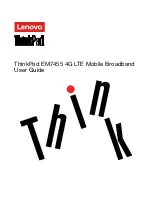
5.2 POWER-UP / SYNCHRONIZATION
Apply AC power to the Model 1180/35 by plugging the separate AC
power adapter first into the rear panel outlet of the Model 1180/35 and
then into an acceptable AC power outlet. There is no power switch on
the Model 1180/35: When the "power" LED is glowing steady, the
Model 1180/35 is powered up. Note: be sure the front panel toggle
switch on both Model 1180/35s is set to NORMAL.
After both the local and remote 1180/35s are powered up, a
synchronization process must occur between the two modems before a
link can be established. Depending upon a number of factors, this
synchronization process can take as long as 60 seconds. Any time one
of the Model 1180/35s loses power (in a lightning storm, for example),
the local and remote units must re-synchronize before they can resume
data transmission. Note: If your application cannot tolerate a 60
second synchronization phase, turning the front panel "Test Modes"
switch to REMOTE and then back to NORMAL will synchronize the
units within 250 mS.
When both Model 1180/35s are powered up and passing data
normally, the following LED conditions will exist:
• PWR = green
• TD & RD = flashing red and green
• RTS & DCD = green
• TEST = off
5.3 LOOPBACK TEST MODES
The Model 1180/35 offers two loopback test modes to evaluate the
condition of the modems and the communication link. These tests are
activated from the front panel.
5.3.1 LOCAL LOOPBACK
The local loopback test checks the operation of the local Model
1180/35, and is performed separately on each unit. Any data sent to
the local Model 1180/35 in this test mode will be echoed back to the
user device. For example, characters typed on the keyboard of a
terminal will appear on the terminal screen.
(continued)
To perform a local loopback test, follow these steps:
A. Activate local loopback by moving the front panel toggle switch
DOWN to "Local". Once local loopback is activated, the Model
1180/35 transmit output is connected to its own receiver. The "test"
LED should glow. (Note: Even though the local Model 1180/35
cannot communicate with the remote Model 1180/35 in this mode,
the synchronized connection between the two modems remains
intact).
B. Verify that the data terminal equipment is operating properly and
can be used for a test. If a fault is indicated, call a technician or
replace the unit.
C. Perform a BERT (bit error rate) test on each unit. If the BERT test
equipment indicates no faults and the data terminal indicates a
fault, follow the manufacturer's checkout procedures for the data
terminal. Also check the V.35 interface cable between the terminal
and the Model 1180/35.
5.3.2 REMOTE LOOPBACK
The remote loopback test checks the performance of the local and
remote Model 1180/35s, and the communication link between them
(see figure 7, on the following page). Any characters sent to the remote
1180/35 in this test mode will be returned back to the originating device.
For example, characters typed on the keyboard of the local terminal will
appear on the local terminal screen after having been passed to the
remote Model 1180/35 and looped back. To perform a remote loopback
test, follow these steps:
A. Activate remote loopback by moving the front panel toggle switch
UP to "Remote". The "test" LED should glow.
B. Perform a BERT (bit error rate) test on the system.
C. If the BERT test equipment indicates a fault, and the local
loopback test was successful for both Model 1180/35s, there may
be a problem with the fiber communication line connecting the
modems. You should test the fiber line for proper connections and
continuity.
9
10



























